
The first capitulation of Tsipras and Varoufakis (Part 8)
by Eric Toussaint
At the end of January 2025, the main leader of Syriza, Alexis Tsipras, became Prime Minister and appointed Yanis Varoufakis, a left-wing economist close to his party, as Finance Minister. It is very important to take the time to analyse the policies put in place by Yanis Varoufakis and the Syriza government because, for the first time in the 21st century, a radical left-wing party was elected in Europe to form a government. Less than six months later, the government finally gave in to the demands of the creditors against the wishes of the Greek people as expressed in the referendum of 5 July 2015. Understanding the failures and drawing lessons from the Syriza government’s handling of the problems are two essential questions. Éric Toussaint shows that it was possible to implement a different policy in line with Syriza’s commitments to the Greek people.
- Greece 2015 | From hope to capitulation | Lessons for the future [Part 1]
- Greece 2015: Varoufakis’ proposals were doomed to fail [Part 2]
- A questionable account by Varoufakis of the origins of the Greek crisis [Part 3]
- How Tsipras and Varoufakis’s turned their backs on Syriza’s platform [Part 4]
- Greece 2015: Varoufakis’s Advisers [Part 5]
- A Negotiation Strategy Doomed to Fail [Part 6]
- Towards the first capitulation and the disastrous 20 February 2015 agreement with the Eurogroup [Part 7]
- The first capitulation of Tsipras and Varoufakis (Part 8)


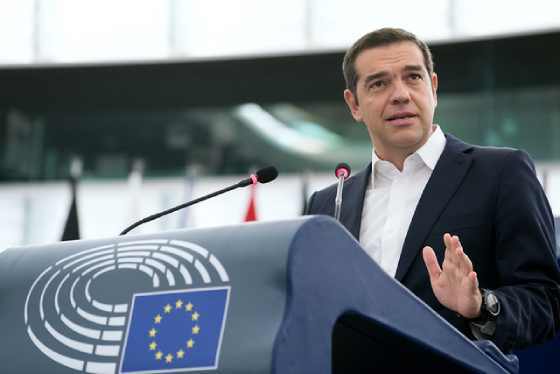

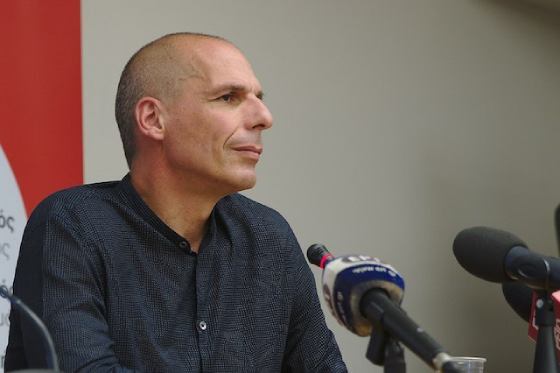
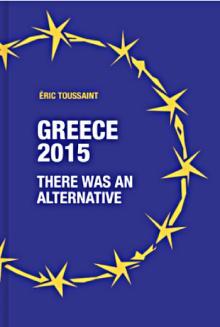 25 January 2015, at a time when Greece had been suffering since 2010 under the burden of a severe austerity regime forced on the country by its creditors and by the social-democrat (Pasok) and conservative (New Democracy) parties who have taken turns exercising power in the country, Syriza (an acronym whose Greek meaning is “coalition of the radical Left”) won the legislative elections in Greece, with 149 deputies out of a total 300. Lacking an absolute majority in the Hellenic Parliament, Syriza formed a coalition government with ANEL (a small “souverainist” right-wing organization which announced that like Syriza, its priority was to put an end to the austerity policies). Syriza’s leader, Alexis Tsipras, became prime minister and appointed Yanis Varoufakis, a left-leaning economist close to Syriza, his finance minister.
25 January 2015, at a time when Greece had been suffering since 2010 under the burden of a severe austerity regime forced on the country by its creditors and by the social-democrat (Pasok) and conservative (New Democracy) parties who have taken turns exercising power in the country, Syriza (an acronym whose Greek meaning is “coalition of the radical Left”) won the legislative elections in Greece, with 149 deputies out of a total 300. Lacking an absolute majority in the Hellenic Parliament, Syriza formed a coalition government with ANEL (a small “souverainist” right-wing organization which announced that like Syriza, its priority was to put an end to the austerity policies). Syriza’s leader, Alexis Tsipras, became prime minister and appointed Yanis Varoufakis, a left-leaning economist close to Syriza, his finance minister.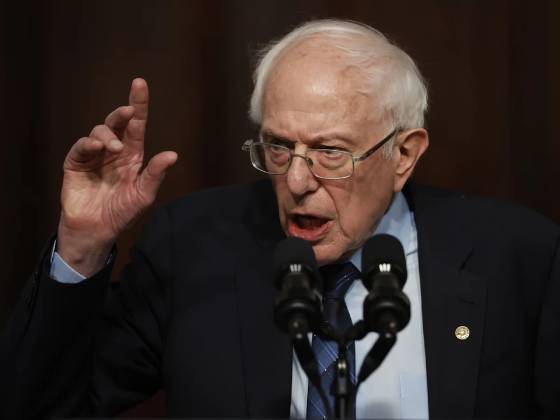
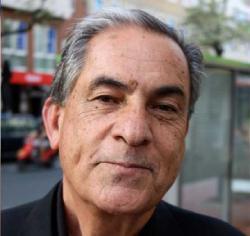 And what if U.S. President Donald Trump suggested setting up death camps for the inhabitants of the Gaza Strip? What would happen then? Israel would respond exactly as it did to his transfer ideas, with ecstasy on the right and indifference in the centrist camp.
And what if U.S. President Donald Trump suggested setting up death camps for the inhabitants of the Gaza Strip? What would happen then? Israel would respond exactly as it did to his transfer ideas, with ecstasy on the right and indifference in the centrist camp. There are two conspicuous myths about the Gaza ceasefire that went into effect last Sunday: that it was due to Trump’s pressure on Netanyahu and that it was a victory achieved by Hamas.
There are two conspicuous myths about the Gaza ceasefire that went into effect last Sunday: that it was due to Trump’s pressure on Netanyahu and that it was a victory achieved by Hamas. I am both Ukrainian and Jordanian of Palestinian origin. My mom is from Ukraine and my dad is a Palestinian-Jordanian. And there are a lot of people like me that come from this particular mix of heritage because many people studied in the former USSR. This is how my parents met. So I was born and raised in Ukraine, and then we moved to Jordan in 2003: I remember this date very well because it was the year when there was war in Iraq. So basically, both countries are my homeland. But all my childhood memories and growing up are related to Ukraine - it's my home.
I am both Ukrainian and Jordanian of Palestinian origin. My mom is from Ukraine and my dad is a Palestinian-Jordanian. And there are a lot of people like me that come from this particular mix of heritage because many people studied in the former USSR. This is how my parents met. So I was born and raised in Ukraine, and then we moved to Jordan in 2003: I remember this date very well because it was the year when there was war in Iraq. So basically, both countries are my homeland. But all my childhood memories and growing up are related to Ukraine - it's my home.  This paper looks not at workers’ struggles, which had their ups and downs over the last two hundred years, but specifically at the revolutionary socialist movement, which aims to eliminate capitalism. While there have been contributions to the vision of a classless, stateless society by utopian socialists and anarchists, the paper concentrates on Karl Marx and Frederick Engels and their legacy. It identifies three bifurcation points in this particular revolutionary socialist tradition where a substantial part of the movement abandoned democracy, internationalism, or both, and argues that this has had a disastrous effect on the movement and needs to be reversed.
This paper looks not at workers’ struggles, which had their ups and downs over the last two hundred years, but specifically at the revolutionary socialist movement, which aims to eliminate capitalism. While there have been contributions to the vision of a classless, stateless society by utopian socialists and anarchists, the paper concentrates on Karl Marx and Frederick Engels and their legacy. It identifies three bifurcation points in this particular revolutionary socialist tradition where a substantial part of the movement abandoned democracy, internationalism, or both, and argues that this has had a disastrous effect on the movement and needs to be reversed. Yair Weigler, an educator and CEO of an organization called "Teachers for Change," has just returned from a lengthy stint in the reserves.
Yair Weigler, an educator and CEO of an organization called "Teachers for Change," has just returned from a lengthy stint in the reserves.
 “We have the power to take an historic stand and defeat this war mongering Senator Harris…. To win this election [the Democrats] need this city [Dearborn], they need this state [Michigan]. We need to deny them those votes….” (cheers and applause.) So spoke “socialist” leader Kshama Sawant in a
“We have the power to take an historic stand and defeat this war mongering Senator Harris…. To win this election [the Democrats] need this city [Dearborn], they need this state [Michigan]. We need to deny them those votes….” (cheers and applause.) So spoke “socialist” leader Kshama Sawant in a  The rising wave of condemnation of Israel’s genocidal war and solidarity with the Palestinian people has occurred despite Al-Aqsa Flood rather than thanks to it.
The rising wave of condemnation of Israel’s genocidal war and solidarity with the Palestinian people has occurred despite Al-Aqsa Flood rather than thanks to it.